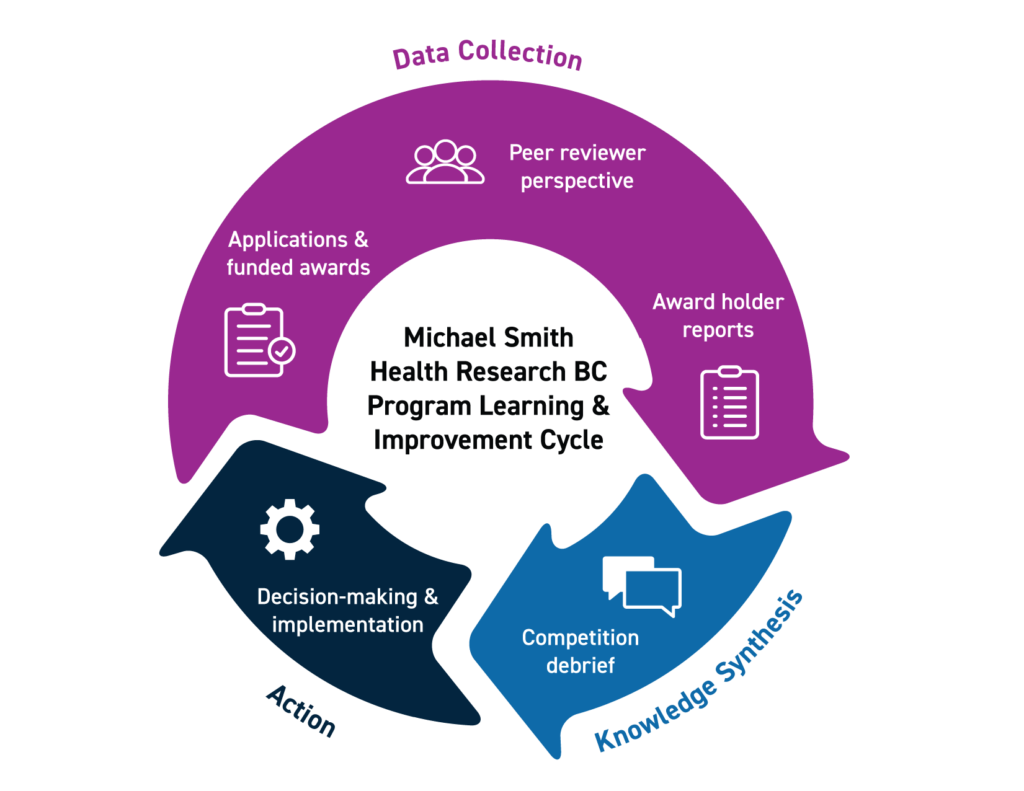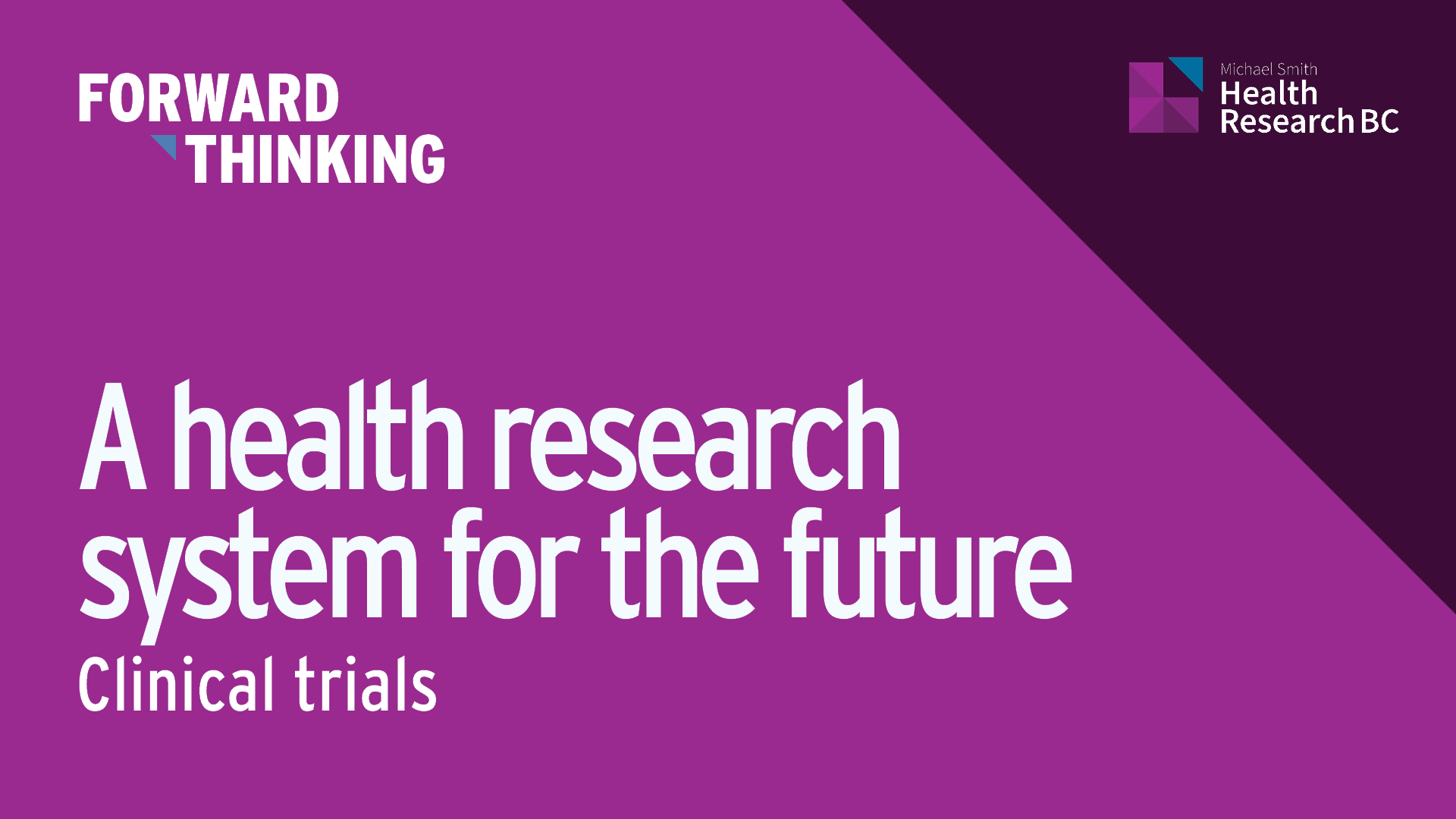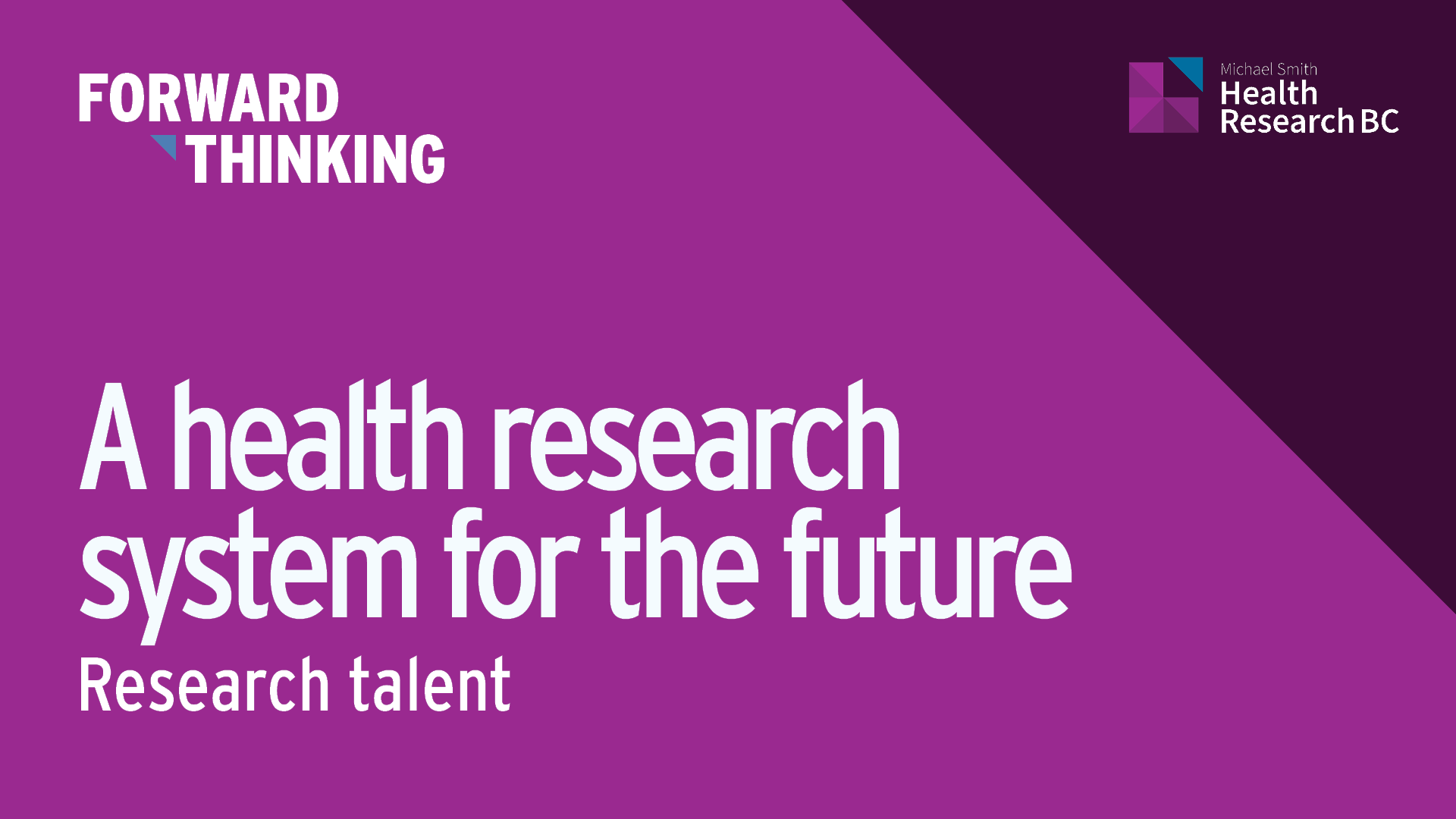The life and times of an MSFHR research funding program
18 September 2018

At MSFHR, we want our programs to not just exist, but to grow and develop — to have impact and be responsive to the needs of British Columbia’s health research community.
Here Dr. Les Grad, MSFHR’s past manager, research programs (design & development), provides a window into how we design, develop and evaluate our programs to ensure they achieve their goals and realize their desired impact.
Forward Thinking is MSFHR’s blog, focusing on what it takes to be a responsive and responsible research funder.
The life and times of an MSFHR research funding program
The world is full of mysteries. The extinction of the dinosaurs. Stonehenge. The popularity of reality television. All of them true enigmas. What shouldn’t be a mystery is how funders develop and maintain the research funding programs they deliver.
Two years ago, MSFHR expanded our suite of programs, adding six multifaceted programs to our flagship Scholar and Research Trainee programs. As a suite, these programs are designed to build research capacity, support the development of BC’s research talent, and address health system priorities in BC.
The development of a single research funding program, much less a full suite of new programs, is no small task. It’s a complex process involving a multitude of stakeholders and contextual factors, and it’s a process that often takes place behind closed doors. As a learning organization, we want to remove the mystery and share the process so others can learn from our experience.
Conception
Five years ago, while developing our 2014 – 2019 strategic plan, MSFHR set out to understand more about the needs of the BC health research ecosystem, and how we could best support research capacity-building in the province. We conducted an environmental scan, an internal review, key informant interviews and stakeholder workshops with key BC health research leaders. This intensive consultation period shaped two important documents: a list of MSFHR funding objectives and a framework for a new suite of programs.
It was about this time that I joined MSFHR’s team, tasked with taking our newly-created framework and turning it into a suite of viable funding programs that addressed the needs identified during consultation. But before launching into development, we wanted to ensure our program plans were not just a good idea in theory, but would, in practice, actually build research capacity and support talent development in BC.
We conducted a province-wide consultation to raise awareness of our proposed suite of programs and seek feedback from the community. We talked to university and health authority researchers, administrators and decision-makers from all over BC, who provided feedback on everything from program objectives to award names. We came to listen, not to dictate, and the interest and enthusiasm we received was tremendous. By the end, we felt confident we had what we needed to finalize and launch our new programs.
Delivery
Using the invaluable feedback gained from our BC-wide consultation, we began to put the finishing touches on our new programs, calling on further internal and external support to address specific informational gaps. For example, when the Health Professional-Investigator Program was in its infancy, we consulted with a variety of health practitioners to ensure our eligibility criteria were broad enough to include as many relevant health professions as possible, but prescriptive enough to ensure applicants were properly qualified and would be appropriate for the proposed program.
Once any gaps are filled, program guidelines are finalized, the online application system is prepared and a competition is launched. Voila! A brand new funding program is born. Job done, right? Well, not exactly. When a new program comes to life, it’s only just the beginning.
Coming of age
We have just completed our second round of competitions for our expanded suite of programs. Continuing the analogy of the life cycle, we’ve watched our new programs take their first steps, but our work doesn’t end there. We want our programs to not just exist, but to grow and develop — to have impact and be responsive to the needs of the health research community. To ensure that happens, MSFHR has developed a program learning and improvement cycle that takes an evidence-informed and multi-stakeholder approach to program iteration.
This more formalized and systematic process helps us collect and track the information we receive from our funding competitions and act on those learnings — sometimes even in real-time — to ensure each program continues to realize its desired impact.
MSFHR’s program learning and improvement cycle consists of three distinct phases: data collection and analysis, knowledge synthesis, and action. Each component involves a specific series of activities that ultimately leads to an actionable and appropriate response.

Data collection and analysis
Data collection starts as soon as the competition guidelines are posted, about a month before our online application system opens for applications. Typically this is when we start getting enquiries. Communications from potential applicants, partners, administrators and others provide us with valuable insight on how our programs are received externally and highlight areas that need more explanation or clarity. All of this feedback is catalogued and analyzed.
The online application system is one our biggest data repositories. For each competition, we can dig into variables such as application pressure and success rates, as well as demographic measures such as the geographic and gender distribution of our applicants. This data allows us to paint a picture of who is applying to our programs, and in what number.
Another key data source are our peer reviewers, who typically have first-hand experience acquiring their own funding through peer-reviewed grant funding and participating in review panels for other funders. As well as recommending which applications should be funded in any given competition, these panels give feedback on the competition itself, the guidelines and the appropriateness of the review criteria.
The final major source of data comes from the annual reports provided by our award holders. These help us determine whether our funding programs are supporting researchers and building research capacity in the way we intended. The reports also offer awardees the opportunity to reflect on their award, suggest how MSFHR could improve the program for future recipients, and share the real-world impact of their research programs to date.
Knowledge synthesis
Once a funding competition is complete and funding decisions have been announced, the next phase of the cycle — knowledge synthesis — begins. The principal activity of this phase is a post-competition debrief, an opportunity to present a comprehensive summary of all the data collected throughout the competition and reporting period, identify strengths and weaknesses, and share significant observations across MSFHR teams, ranging from Knowledge Translation to Research Competitions and Stakeholder Relations.
The post-competition debrief not only serves to inform staff of the observations and learnings from a particular competition, but also provides a forum for discussion and actionable recommendations. These recommendations are then communicated to the appropriate individuals within the Foundation for the next step in the cycle.
Action
The action stage takes recommendations from the post-competition debrief forward for decision-making and implementation. Recommendations can be of varying scope and significance. Some may represent changes that are relatively simple and straightforward to implement. Others may be more complex in nature requiring additional external consultation prior to implementation. Based on the evidence, we develop an action plan and, when appropriate, communicate to our health research community and associated stakeholders.
A perfect example of this is the evolution of our health policy opportunities. In 2016, MSFHR launched its Health Policy Fellowship Program, an experiential training opportunity for post-doctoral trainees looking to gain real-life health policy research experience in a formal policy setting, such as a health authority. The program was well received, but around the same time CIHR launched a similar national program, the Health System Impact Fellowship (HSIF).
Given the similarities and the highly specialized pool of applicants, we made the decision, with support of our health authority partners, to pause our program for 2018 and partner with CIHR to support BC applicants in the national HSIF competition.
By partnering with CIHR on the program, our goal was to increase the number of funded awardees working with BC health authorities and the provincial Ministry of Health. We were able to modify our course of action to support this, reduce duplication in the system, and provide maximum benefit for the BC health research community. Stay tuned for the results of the 2018 HSIF competition in the coming weeks.
The future
The research environment here in BC and nationally, is changing and our funding programs must respond in-kind.
With our program learning and improvement cycle in place, we can make evidence-informed decisions to advance and adapt our programs. But, the cycle is only as good as the data it uses. If you are an MSFHR applicant, award holder, peer reviewer or other stakeholder, make sure we hear from you. Respond to those online surveys. Fill out those annual reports. Call our Help Desk support line with your questions. The information you take the time and effort to provide helps us monitor our funding programs to ensure each program continues to be as impactful and responsive as possible.





